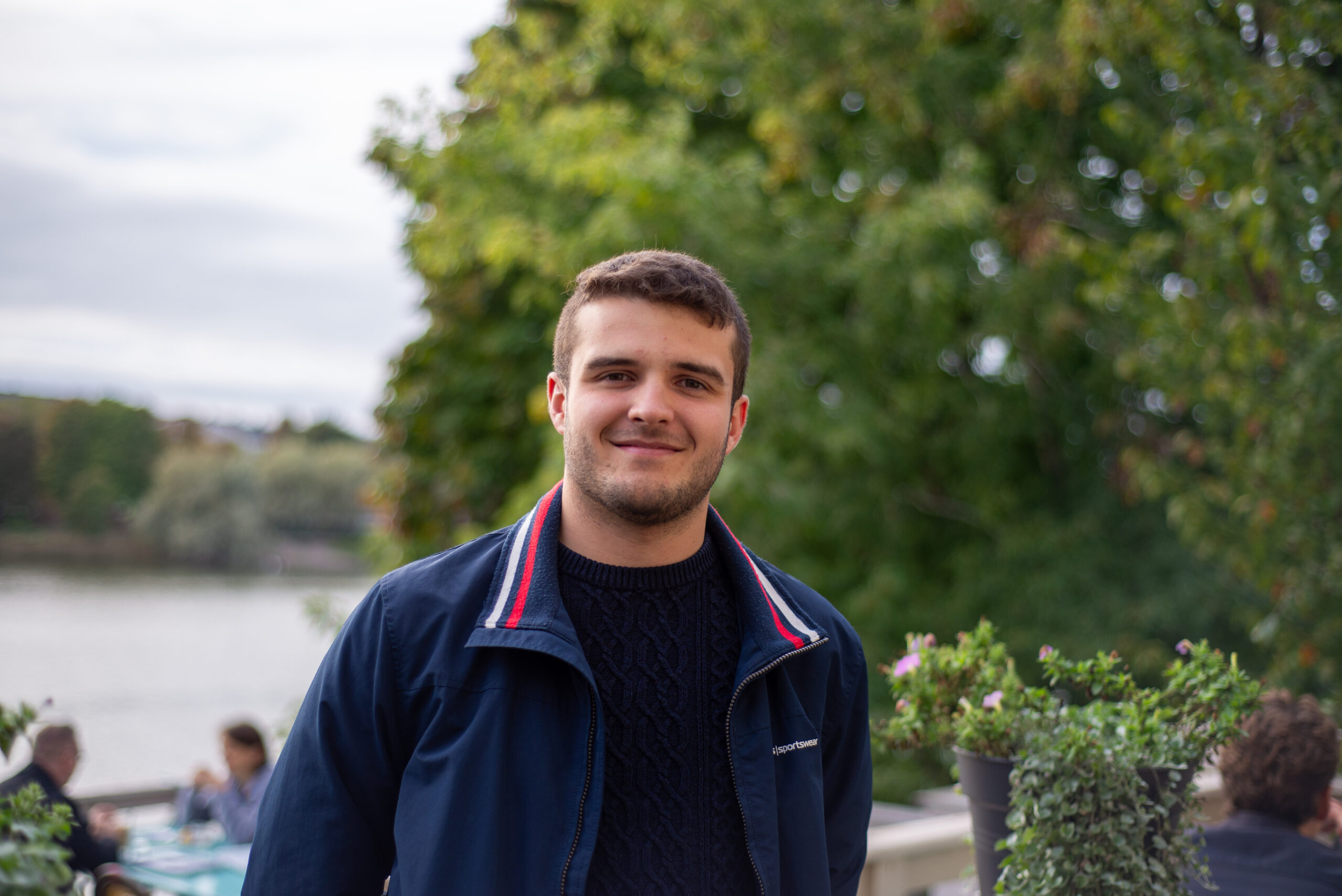Aiemmin tänä vuonna minulla oli tilaisuus osallistua CodeBus Africa -projektin (http://finland100africa.fi) matkalle Namibiaan. Tiivistettynä kerrottakoon, että projektin tarkoituksena oli tuoda yhteen suomalaisia ja paikallisia ohjaajia kymmeneen Afrikan maahan (Nigeria, Ghana, Etiopia, Kenia, Tansania, Uganda, Sambia, Namibia, Etelä-Afrikka ja Mosambik) ohjaamaan koodaustyöpajoja lapsille ja nuorille. Projekti oli osa Suomi100- juhlavuotta.
CodeBus-projekti ei ole kehitysyhteistyöprojekti – siitäkään huolimatta että sillä saattaa olla joitain pitkäaikaisia myönteisiä vaikutuksia. Suomi 100 -juhlan hengessä päätarkoituksena oli lisätä Suomen myönteistä mainetta maailmalla ja edistää perinteisiä vahvuuksiamme, kuten koulutusta ja tasa-arvoa. Siitä huolimatta uskon projektissa olleen joitain seikkoja, joista SYL:n kehitysyhteistyö voisi oppia.
Ensimmäinen opetus on teemallisuus. Projekti oli kehitetty Suomen vahvuudet huomioiden. Suunnittelu aloitettiin miettimällä sitä, mitä Suomen tulisi esitellä maailmalla muille maille. Koodaustyöpajat viestivät teknologiasta ja laadukkaasta koulutuksesta, jotka ovat Suomen ylpeyksiä. Samantapaisesti huomiota kiinnitettiin siihen, että ohjaajien joukossa oli paljon niin paikallisia kuin suomalaisiakin naisia. Selkeiden ja ajankohtaisten teemojen ansiosta myös yritykset kiinnostuivat projektista.
SYL edustaa suomalaista korkeakoulutusta, joka arvotetaan monissa maissa korkealle. SYL on myös todennäköisesti yksi maailman tehokkaimmista opiskelijajärjestöistä demokratian mittapuulla mitattuna. Olisiko tämä asiantuntijuus sellaista, jota SYL voisi jakaa maailmalla?
Lisäksi, CodeBus Africa suunniteltiin tiiviissä yhteistyössä suomalaisen yritysmaailman kanssa. Nokia oli projektin pääyhteistyökumppani. Pidimme siitä tai emme, yrityksillä on yhä suurempi ja suurempi rooli kehitysyhteistyösektorilla tulevaisuudesa. Toki on mahdollista, että yritykset haluavat osallistua projekteihin vain hyvästä tahdosta, mutta henkilökohtaisesti en luottaisi siihen liikaa. Kehitysyhteistökentän toimijoiden kannattaisi pohtia, mitä ne voisivat tarjota yrityksille. Miksi niiden kannattaisi osallistua projekteihin? Tavallisin tarjous liittyy positiivisen näkyvyyden takaamiseen, mutta sen ei tarvitsisi välttämättä olla ainoa hyödyke. SYL on yksi johtavista tulevaisuuden kykyjen kasvattamoista Suomessa, ja se työskentelee samantapaisten organisaatioiden kanssa kansainvälisesti. Haluaisivatko yritykset osallistua, mikäli ne voisivat toimia SYL:n ja sen kumppaneiden kanssa yhteistyössä?
Kokonaisuudessaan CodeBus vaikutti onnistunelta projektilta, joka sai positiivista huomiota niin Suomessa kuin yhteistyömaissakin. Se opetti uutta niin isäntämaiden kuin Suomenkin osallistujille ja opettajille. Tämän tapaiset projektit voisivat hyvinkin yleistyä tulevaisuudessa, ja SYL:llä on erinomainen potentiaali olla mukana luomassa vastaavia. Huolellisella suunnittelulla ja valmistelulla SYL:istä voisi jopa tulla huomattavampi toimija suomalaisen kehitysyhteityön kentällä.
Pietari Keskinen
Kirjoittaja on SYL:n kehitysyhteistyön neuvottelukunnan KENKKU:n jäsen
____________________________________
What SYL could learn from the coding workshops Finland organized in African countries?
Earlier this year I had a chance to participate the CodeBus Africa –project’s (http://finland100africa.fi) trip in Namibia. To put a long story short, CodeBus Africa brought both Finnish and local instructors to ten different African country (Nigeria, Ghana, Ethiopia, Kenya, Tanzania, Uganda, Zambia, Namibia, South-Africa and Mozambique) to host coding workshops in different locations for the children and the youth. The project was part of the Finland100 celebrations.
CodeBus project was not a developmental cooperation project. Although there might be some positive long-term effects, the project was not build with that on mind. As a part of Finland100 celebrations, a big part of the project’s goal was to raise positive awareness of Finland, and to promote our traditional strengths such as education and equality. However, I think that there are couple of lessons that the SYL developmental cooperation work could learn from that project.
The first lesson is the topicality. The project was designed the strengths of Finland in mind. The planning started with thinking what Finland would like to showcase for other countries. The coding workshops communicated about the technology and good education, which were something that Finland can be proud of. Similarly, extra attention was given to the fact that there were a lot of women among the both Finnish and local instructors. It was also made sure that the local girls would come to the workshop. The clear and even “buzzy” themes probably made corporate participation for the project easier.
SYL represents the higher education in Finland, which is considered very good in many countries. SYL is also likely one of the most efficient student democracy organizations in the world. Is this expertise something that SYL could share with the world?
Additionally, CodeBus Africa was planned in closed cooperation with the Finnish business world. Nokia was the project’s main corporate partner. Whether we like it or not, companies will have a larger role in the developmental cooperation in foreseeable future.
Of course, it is possible, that some companies want to participate projects just out of the good will, but I would not personally trust that too much. The actors on the developmental cooperation field should start thinking what they are offering for the businesses. Why would they like to participate the projects? The most typical offering is probably the good publicity, but it does not need to stop there. SYL is one of the leading hatcheries of future talent in Finland, and it works with similar organizations in different countries. Would the companies want to participate if they could work with SYL and its partners?
Overall, the CodeBus project seemed to go very well. It received positive attention in both Finland and in the host countries, and probably taught something new about the world for both the locals and the Finns. These kinds of projects could very well be more common in the future. SYL has a great potential to execute other similar projects in the future. With proper planning and preparations, SYL could actually become more prominent actor in the Finnish developmental cooperation field.
Pietari Keskinen
The writer is a member of the Development Cooperation Advisory Board of SYL (KENKKU).





